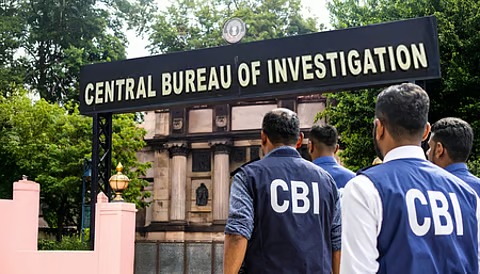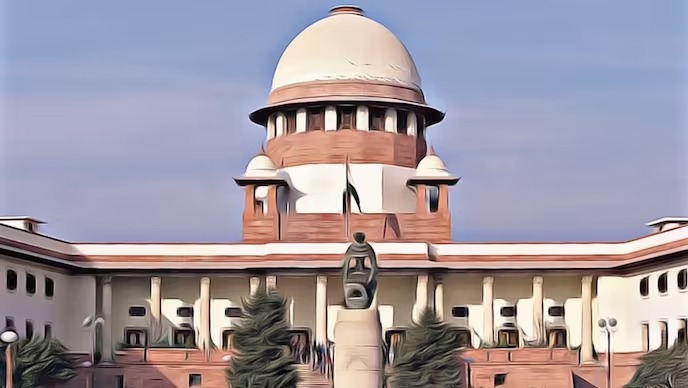Sinha, J.@mdashThe facts in this case are shortly as follows: The Garden Reach Municipality is a Municipality in the suburbs of Calcutta, governed by the Bengal Municipal Act, 1932. The last general election of the said Municipality was held on the 5th May, 1953. Thereafter, the petitioner No. 1 was elected as the Chairman and the petitioner No. 2 was elected as the Vice-Chairman. Section 78 of the Bengal Municipal Act, 1932 (hereinafter referred to as the Act), runs as follows:
78. (1) The Chairman, or in his absence, the Vice-Chairman, shall call a special meeting of the Commissioners on a requisition signed by not less than one-third of the whole number of Commissioners of the Municipality.
(2) If the Chairman or Vice-Chairman fails to give notice of a special meeting to be held within fifteen days after such requisition has been made, the meeting may be called on seven days'' notice by any three of the Commissioners of the Municipality.
2. On the 31st March, 1954, the respondents to this application issued a notice of requisition as contemplated u/s 78(1) of the Act. It is not disputed that the requisition was in proper form. The requisition called upon the Chairman to hold a special meeting of the Commissioners for considering the following list of business:--
(a) to record a vote of no-confidence against the Chairman, Garden Reach Municipality, and to remove him from his office u/s 61 (2) of the B.M. Act, 1932.
(b) to record a vote of no-confidence against the Vice-Chairman, Garden Reach Municipality, and to remove him from his office u/s 61(2) of the B.M. Act, 1932.
3. It is said that the requisition was received by the petitioners on the 31st March, 1954. The Chairman issued a notice dated the 12th April, 1954, in the following terms:--
In compliance with the requisition dated the 31st March, 1954, I hereby give notice to the Commissioners, convening a special meeting to be held at the Municipal office on the 9th June, 1954, at 9 A.M.
4. The items of business were as specified in the original requisition.
5. On the 22nd day of April, 1954, the respondents Nos. 1 to 3 purporting to act u/s 78(2) of the Act, issued a notice to the Commissioners stating that a requisition had been made and it was expected that the special meeting would be held by the Chairman on or before 15th April, 1954. But as the Chairman had failed to comply with the requisition, the respondents Nos. 1 to 3 gave notice that a special meeting would be held at the Municipal Office on Friday, the 30th April, 1954, at 10 A.M., to record a vote of no-confidence against the Chairman and the Vice-Chairman and to remove them from their respective offices u/s 61(2) of the Act.
6. This Rule was issued on the 27th April, 1954, calling upon the opposite parties to show cause why a writ in the nature of mandamus should not be issued directing them to forbear from giving effect to, or from taking any steps in terms of, the notice dated the 22nd April, 1954, and|or why the said notice should not be rescinded, withdrawn and|or recalled, and|or why such further or other order or orders should not be made as to this Court may seem fit and proper.
7. An interim order was made, directing the respondents not to hold the meeting on the 30th May, 1954, but it so happened that the meeting was held on that date and a resolution passed, removing the Chairman. An application for committal of the respondents for contempt was made, but excepting as to two of the respondents, the petitioners could not bring home the charge that they had been served with notice of injunction prior to the holding of the meeting. These two respondents admitted having received the notice, but at a very late hour, and they thought that it was a ruse on the part of the Chairman to keep them from holding any effective meeting. The facts relating to the holding of this meeting on the 30th, have been dealt with in my judgment in the contempt matter and it is unnecessary to repeat them here.
8. The whole point to be considered is as to whether the notice issued by the Chairman calling a special meeting on the 9th June, 1954, was sufficient compliance with the provisions of section 78(1) of the Act, or whether the respondents were justified in treating the notice as a non-compliance with the provisions of section 78(1), and proceed to take action u/s 78 (2) read with section 61(2) of the Act. This point really depends upon the interpretation of section 78(2) of the Act. According to Mr. Chakraborty appearing on behalf of the petitioners, what is to be done within 15 days [as specified in section 78(2)] is to issue notice of a special meeting, and it is not necessary to hold it within that period. If that be so, then the notice given by his client would be in order. On the other hand, if the law required that the special meeting itself should be held within 15 days, then admittedly the notice is not in due compliance with the provisions of the law, and the respondents were justified in taking steps u/s 78(2) of the Act. In my opinion, the special meeting should not only be ''called'' within 15 days but must be ''held'' within that period. The wordings of section 39 of the Bengal Municipal Act, 1884, were slightly different and ran as follows:--
The Chairman, or in his absence, the Vice-Chairman shall call a special meeting on a requisition signed by not less than three of the commissioners.
[If the Chairman or the Vice-Chairman fails to call a meeting within thirty days after any such requisition has been made, the meeting may be called by the persons who signed the requisition].
9. Mr. Chakraborty argues that under the old Municipal Act, it was quite clear that the meeting has to be ''called'' within 30 days and not ''held''. I am not certain as to whether there is any real difference in such a case between ''called'', and ''held''. It appears, however, that the legislature has altered the wordings in order to remove any possible doubts on the point. If we look at section 45(2) of the Act, we find the words "The Commissioners shall at a meeting to be held within 21 days from the date of the occurrence of the vacancy elect by name in the prescribed manner one of their number for filling up the vacancy". Mr. Chakraborty has conceded that here the meaning is quite clear, namely, that the meeting must be ''held'' within 21 days. If that be so, I do not see why it is not equally clear that u/s 78(2) the special meeting is to be ''held'' within 15 days after the requisition has been made, otherwise the words, "to be held", seem to be superfluous. In my opinion, sub-section (2) has made it clear that the special meeting itself was to be held within 15 days after the requisition had been made.
10. Mr. Das Gupta has argued, and I think there is great substance in it, that the grant of an unlimited period to a Chairman to call a special meeting of this description, would defeat the very purpose for which the meeting was to be convened. If there is no limit to the time within which a requisition meeting was to be held, then the Chairman could hold it years afterwards or defer it until he felt that the storm had blown over, or even until the next elections. In fact, the note of urgency which is inherent in this particular section would be frustrated, if one were to construe the sub-section as laying down that the notice was to be given within 15 days but the special meeting might be held at any time the chairman wished. Mr. Chakraborty has made reference to various other Acts It is very dangerous to construe the provisions of one Act with those of another. I will however notice some of these provisions.
11. In the Calcutta Municipal Act, 1951, the corresponding provision is section 88(2). There, "The Mayor, or in his absence, the Deputy Mayor may, whenever he thinks fit, and shall, upon a requisition made in writing by any twenty councilors or Alderman, call a meeting of the Corporation". Thus there is no time limit whatsoever specified, either for the requisition or the issue of notice or the holding of the meeting. It is of course an well-known principle of interpretation that where no time is specified it means reasonable time. In section 30(b) of the Bengal Local Self Government Act, 1885, we find provisions very similar to the old Bengal Municipal Act, 1884.
12. Lastly, Mr. Chakraborty has drawn my attention to section 28(3) of the Indian Companies Act which is as follows:
If the directors do not proceed within twenty-one days from the date of the requisition being so deposited to cause a meeting to be called, the requisitions, or a majority of them in value, may themselves call the meeting but in either case any meeting so called shall be held within three months from the date of the deposit of the requisition.
13. It will be observed that the words ''called'' and held'' are both used in this provision of law in juxtaposition, and obviously there was meant to be a differenciation between the two. In the instant case, the emphasis is on the word ''held''. In my opinion, the law provides that the special meeting of which the notice was to be given was itself to be held within 15 days after the requisition had been made. It will be observed that in the latter part of the sub-section, we have the words ''the meeting may be called on seven days'' notice''. There the word used is ''called'' and not ''held''.
14. The result is that I hold that u/s 78(2) of the Act, it was incumbent upon the Chairman to issue notice which would make it possible for the special meeting itself to be held within 15 days from when the requisition had been made. The notice issued by the Chairman is therefore not in accordance with the provisions of law and the respondents were perfectly justified in taking action u/s 78(2) of the Act. In view of this, the action taken by the respondents does not call for any interference by this Court, and this application must be dismissed. The Rule is discharged. In as much as the matter is one of first impression, I make no order as to costs. The interim order will stand vacated.

